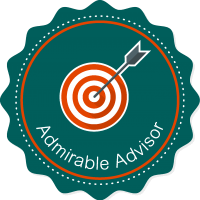Entering the field of educational leadership as a beginner can be both exciting and challenging. It is a continuous learning process. Resilience your armour against the inevitable setbacks, you will ever face. When any challenge arises, approach them with a great problem-solving mind-set. Here are some strategies to help you overcome those challenges:
-
Continuous Learning: Educational leadership is a dynamic field that requires staying updated with the latest research, best practices, and educational policies. Commit yourself to continuous learning through professional development opportunities, workshops, conferences, and networking with experienced professionals.
-
Seek Mentorship: Find mentors who are experienced educational leaders and seek guidance from them. They can provide valuable insights, advice, and support as you navigate your career path. A mentor can also help you develop leadership skills and offer perspectives based on their own experiences.
-
Build Relationships: Building strong relationships with teachers, staff, students, parents, and other stakeholders is essential for success in educational leadership. Take the time to listen to their concerns, understand their perspectives, and collaborate with them to address challenges and achieve common goals.
-
Embrace Challenges: View challenges as opportunities for growth and learning. As a beginner, you may encounter various obstacles such as resistance to change, budget constraints, or complex organizational dynamics. Approach these challenges with a positive mindset, resilience, and creativity to find innovative solutions.
-
Develop Communication Skills: Effective communication is key to successful educational leadership. Hone your communication skills, both verbal and written, to articulate your vision, goals, and expectations clearly to stakeholders. Practice active listening to understand the needs and perspectives of others.
-
Cultivate Emotional Intelligence: Emotional intelligence, including self-awareness, self-regulation, empathy, and social skills, is crucial for effective leadership. Develop these skills to navigate interpersonal relationships, manage conflicts, and inspire others to achieve common objectives.
-
Stay Flexible and Adaptive: Educational leadership often requires adapting to changing circumstances and unforeseen challenges. Stay flexible in your approach, be open to new ideas and feedback, and be willing to adjust your strategies as needed to achieve desired outcomes.
-
Celebrate Successes: Acknowledge and celebrate successes, no matter how small, to foster a positive culture and morale within your educational community. Recognizing and appreciating the efforts of others can help motivate and inspire continued progress.
By embracing these strategies and approaches, you can navigate the challenges of being a beginner in the field of educational leadership and establish yourself as an effective and influential leader within your educational community.



Thank you for the insight